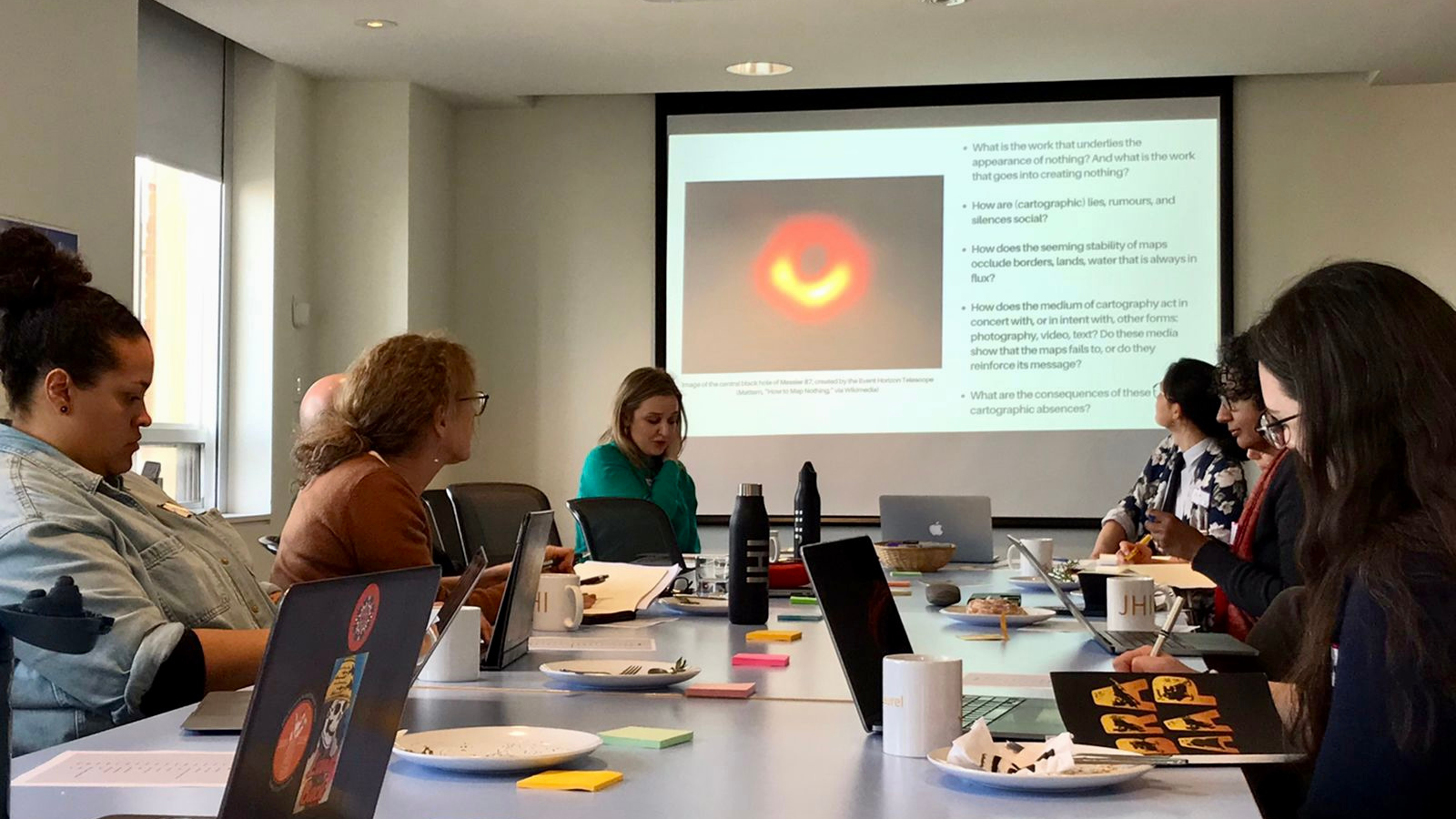Whether intentional or not, obvious or papered-over, deceitful or honest, maps have gaps, blank spots, silences, and other absences. Maps present, persuade, and sometimes lie, and these “cartographic silences” also speak.
In conjunction with JHI’s 2023-2024 annual theme of “Absence,” seventeen scholars from the University of Toronto and beyond gathered on March 8, 2024, to share current research that investigates the absences on, of, and around maps. “‘A Blank Space of Delightful Mystery’?: A Workshop on Cartographic Absences” was organized by Chloe Bordewich, JHI-CDHI Critical Digital Humanities Postdoctoral Fellow, and Nick Field, Data Support Specialist at the Map and Data Library and PhD Candidate, Department for the Study of Religion. Presenters at the day-long workshop spanned from an undergraduate to a professor emerita, and they hailed from across the disciplines: History; English; Slavic Languages and Literatures; Geography and Planning; Near and Middle Eastern Civilizations; Religion; Architecture, Landscape, and Design; and the Faculty of Information.
Discussion probed cartographic absences’ many forms, including deliberate omissions, guesswork, and stretches of uninked paper, as well as the strategic absence of people who refuse mapping and other-than-human forces that defy it. What work goes into the appearance of absence? How does the seeming stability of maps occlude borders, lands, and waters that are always in flux? How does the medium of cartography act in concert or in tension with forms like photography, video, and text? And what are the consequences of a cartographic absence?
Borrowed from Joseph Conrad’s Heart of Darkness, the title of the workshop references a remark by the novel’s narrator about how the white space on a map of Africa sparked his cartographic imagination. Years later, he is disappointed to see the formerly blank space filled in with names, proud to see a wash of British red amidst the other colonial holdings, and hungry to make his own fortune. The workshop framed Conrad’s words as a question to expose cartography’s long entanglement with imperialism and inequality, and to invite fresh readings of its absences.



